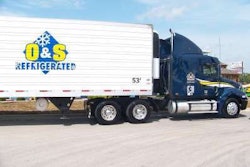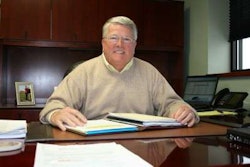Oil Purification Systems, a provider of fluid cleaning technology, announced that the Army & Air Force Exchange Service (AAFES) Logistics has begun implementing the OPS-1 onboard oil refining system on its fleet of domestically based trucks. AAFES says it selected the OPS-1 system to help advance its efforts in environmental sustainability. Once the implementation is complete, the organization expects to extend its oil change intervals from 20,000 to 120,000 miles, saving money and reducing oil waste, while also minimizing the negative effects to the environment.
“For AAFES, cleaning up the environment begins at home,” says Maj. Gen. Keith Thurgood, commanding general of AAFES. “For our facilities residing on Army and Air Force installations across the globe, ‘home’ is the military community where our customers live, serve and shop. AAFES is continuously evaluating our operations, looking for new ways to protect our environment and reduce our carbon footprint. The OPS technology fits perfectly with our environmental sustainability goals, while also saving us money and enabling us to provide a better experience for our customers.”
As with any organization that employs a large fleet of trucks, regular oil maintenance represents a significant expense for AAFES Logistics. After conducting a pilot test of the OPS-1 system on 10 of its trucks, AAFES says it was able to reduce the number of oil changes per truck from eight to one annually; this will reduce the amount of oil for each tractor by 70 gallons per year. AAFES expects a two-year savings of $882,000 and 17,640 gallons of oil for 294 tractors.
“As the Department of Defense’s oldest and largest retailer, AAFES is actively involved in seeking out technologies that will help meet its goals for promoting environmental sustainability, and ultimately a better experience for its customers,” says Greg Slawson, chief operating officer for OPS, based in Shelton, Conn. “We are pleased to be involved with AAFES, and believe that the OPS technology will play a role in its mission for many years to come.”










